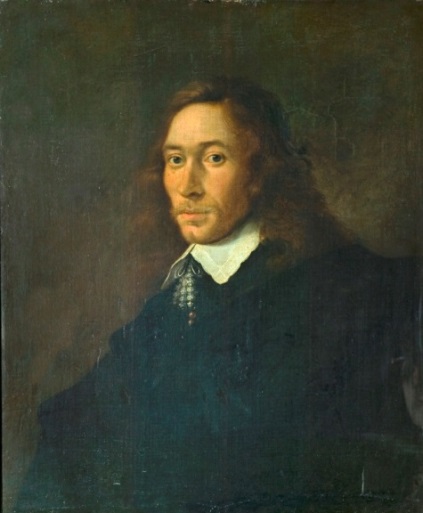In the second of two posts, Lorna Ormiston, a history undergraduate from Sheffield University, looks at Derbyshire’s role in a tumultuous era of British history.
The English Civil War (or rather civil wars) began in 1642 with the king raising his standard in Nottingham after failing to reach a settlement with parliament. This was because one of the fundamental causes of the war was the king’s and parliament’s inability to agree on how the state should be run. Charles I believed, as his father James I did, in divine rule which was the idea that the King was appointed by God and thus can only be accountable to God. Whereas, parliament believed that they were there to limit the king’s power and to legislate new laws. As a result, the king’s controversial personal rule (which meant the king ruled without convening parliament) included Charles I reinstating archaic laws to gain money for foreign wars in order to bypass asking parliament for money. As well as, that Charles I’s implementation of new religious policies in England, Scotland and Ireland only proceeded to aggravate parliament further, since some parliamentarians were convinced Charles I “evil advisers” were part of a “popish plot” to force Catholicism on Protestant England.

Thus, both parliament’s and Charles’ inability to understand one another contributed to the outbreak of the English Civil War, which led to two other civil wars (the last one ending in 1651) and the execution of Charles I in 1649. Therefore, it is unsurprising that historians such as Christopher Hill have noted that this dispute was a revolution and ultimately an event which “turned the world upside down”. [i] The sentence of Charles I interestingly, was carried out by John Bradshaw who came from Marple in nearby Cheshire, as the President of the High Court of Justice at the trial. Here is a painting of him which Buxton Museum and Art Gallery has in its collection.
This suggestion that the “English” Civil War had a profound impact is correct, since the whole of what later becomes the United Kingdom both influences and is influenced by the war. And thus, is why we will move on to look more generally at Derbyshire’s role within in the civil war with reference to its surrounding areas, because counties do not operate in isolation. This can be seen with historian Brian Stone noting, that along with Nottinghamshire and Derbyshire ‘whichever side first secured those two vital counties…would be half-way to winning the war’.[ii] This is because according to Stone the king could unite his army in Oxford and the Earl of Newcastle’s in Yorkshire and then ‘outnumber parliament at every turn’ which made Derbyshire a strategic place to maintain support.[iii] Although, we should be cautious with this idea that by obtaining Derbyshire it could alter the result of the war-as different circumstances often alter the course of history-, it shows the importance of why Derbyshire’s “big” personalities in terms of military commanders should be discussed. One such key figure is Sir John Gell of Hopton Hall, who was wealthy member of the gentry because of his family’s engagement in sheep farming and lead mining and later becomes a skilful parliamentarian commander.[iv] This being the case, one of Sir John Gell’s notable achievements was the successful fortification of Derby against threats, which included Prince Rupert and the hated Spanish queen Henrietta Maria.[v] William Cavendish, who owned Chatsworth, also engaged with the civil war but was a royalist and ended up living in exile because of parliament’s victory, although he did return with the restoration and repaired Bolsover Castle (which had been demolished to stop Royalist reprisals).[vi] Hopefully, this short snippet of Derbyshire’s personalities and role within the civil war (after restraining myself from writing copious amounts) demonstrates that there is always more history to be uncovered.
For more information on this topic I recommend the following academic works:
Brian Stone, Derbyshire in the Civil War (Northampton, 1992)
Christopher Hill, The World Turned Upside Down: Radical Ideas During the English Revolution (London, 1991)
Conrad Russell, The Causes of the English Civil War (Oxford, 1990)
[i] Christopher Hill, The World Turned Upside Down: Radical Ideas During the English Revolution (London , 1991)
[ii] Brian Stone, Derbyshire in the Civil War (Northampton, 1992), p.17.
[iii] Ibid.
[iv] Ibid.
[v] Trevor Brighton, ‘Gell, Sir John, first baronet (bap. 1593, d. 1671)’, Oxford Dictionary of National Biography (2004) http://www.oxforddnb.com/view/article/10508 [accessed 28 July 2017].
[vi] Ibid.
[1] Christopher Hill, The World Turned Upside Down: Radical Ideas During the English Revolution (London , 1991)
[1] Brian Stone, Derbyshire in the Civil War (Northampton, 1992), p.17.
[1] Ibid.
[1] Ibid.
[1] Trevor Brighton, ‘Gell, Sir John, first baronet (bap. 1593, d. 1671)’, Oxford Dictionary of National Biography (2004) http://www.oxforddnb.com/view/article/10508 [accessed 28 July 2017].
[1] Ibid.


Reblogged this on Collections in the Landscape.
LikeLike
I love Buxton, mainly his landscapes, his history and art
LikeLike